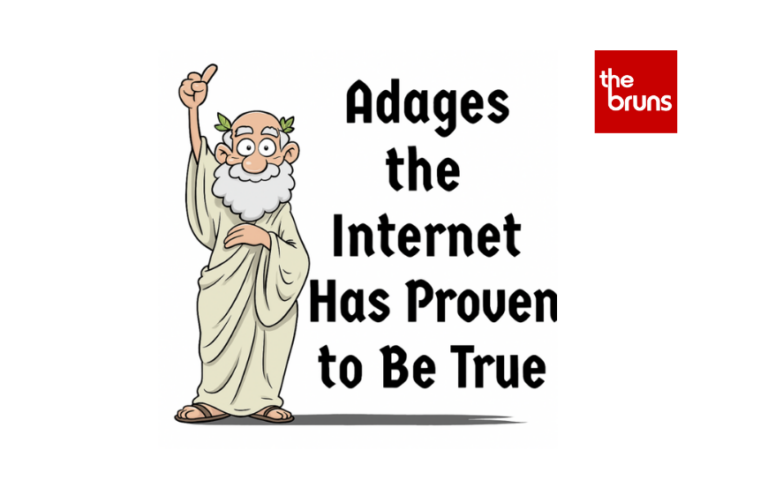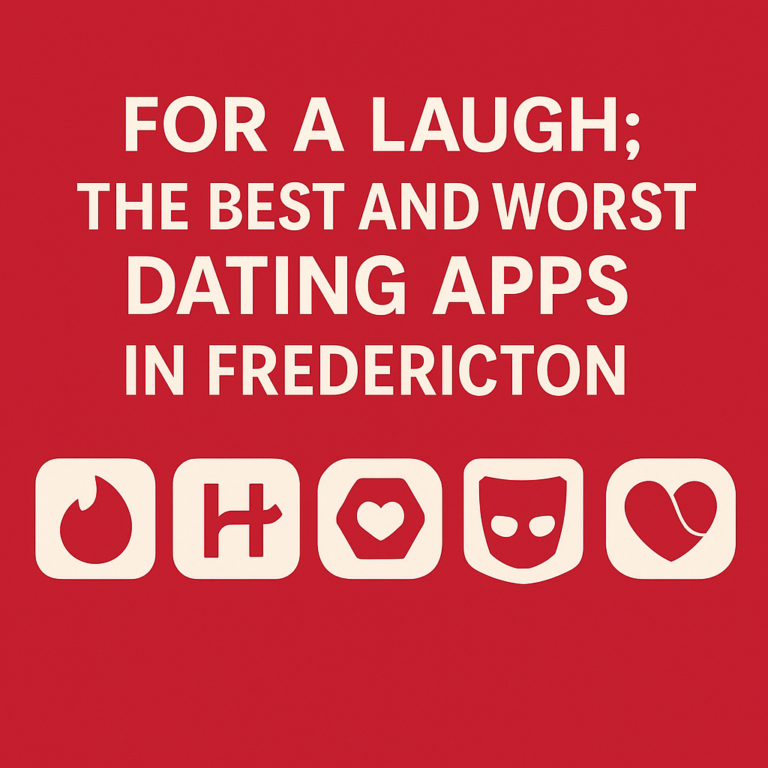You may have recently heard rumblings about Canada’s first-ever “for-the-people” newspaper – Druthers. For just a dime apiece, Druthers purports to tell the people what they really want to hear. By encouraging skepticism of vaccines, Druthers has captured the attention of many members of the Freedom Convoy.
A few weeks ago, reporters at The Brunswickan attended a convoy gathering in downtown Fredericton to gather news and interviews. While approaching potential interview subjects, we made sure to let participants know that we were one of New Brunswick’s only independent media sources. “No!” a number of convoy supporters announced. “Druthers have been here for a few hours now.”
Convoy supporters seemed to doubt the ethics and validity of The Brunswickan’s reporting standards. We at The Brunswickan – a student-led, independently-run, non-Irving-owned newspaper – were now defined, according to several of the convoy’s supporters, as belonging to “mainstream media.”
According to the non-profit Canadian Anti-Hate Network, Druthers has several “extremist ties,” including the anti-muslim group ACT! For Canada, and white nationalist, ex-UNB professor Ricardo Duchesne’s blog, Council of European Canadians.
Many Maritimers have already felt the reach of Druthers and its conspiratorial brand of anti-science, anti-vaccine reporting.
Ruth MacNeil, a citizen of Big Pond, Cape Breton, routinely reads the town’s daily newspaper. On one morning, MacNeil headed outside to grab her local paper. Instead, she received an awful surprise: an anti-vaccine edition of the far-right magazine Druthers.
“I was really disturbed,” MacNeil explained. “I went out to get my paper and then when I got this… well as soon as I started reading it, I knew what it was all about — it was just anti-vaccination, and that’s basically it.”
The front page of the paper showed in large font: “8 reasons not to jab your children.” The magazine further compared Canadian vaccine programs to the events of the Holocaust in Nazi Germany, and called for a new set of “Nuremberg Trials” to try the Canadian Government for supposed “attrocities” committed against the Canadian people.
An enterprise reporter with the Cape Breton Post, Chris Connors, felt appalled that MacNeil had received the paper.
“I was totally appalled. I couldn’t believe what I was reading. It was half-truths and then total lies. I thought it was just against science. It was just complete lies that people might actually believe.”
Druther’s editor Shawn Jason Laplante hopes to expand the reach of their paper.
“I received a phone call from Ted Kuntz, president of Vaccine Choice Canada, and it looks like we are joining forces to make Druthers even bigger and deeper reaching,” Laplante wrote in the private Druthers Facebook group on December 4.
While Laplante is adamant in saying he does not fully agree with those who support the magazine, its readership and sources of support are undoubtedly causes for concern. The promotion of anti-mask, anti-vaccine, and conspiratorial writing creates a sense of distrust for truly independent media sources, and might push Canadians further into the fringe right.
We at The Brunswickan have made a short checklist to keep in mind while reading any source of news media:
- Investigate your media sources and look into what reasons they might have for trying to push a certain agenda or set of beliefs. Ask questions such as: how would those running this media source benefit from people believing the facts they present? How do their personal views shape the facts they are presenting as the truth?
- While reading news media, approach it without your own prejudices or opinions. Facts should speak for themselves, and any reaction we have to those facts reflects on us as individuals, not necessarily on the truth being presented. Ask questions such as: why do I feel so strongly about this fact? Does this news story challenge my belief system, or do I suspect that it is actually untrue?
- Challenge yourself to seek out news that is beyond your personal interest and ideas, and be wary of what you might accept as true without looking into it further. Ask questions such as: have I taken in any news beyond my usual community/interest this week? Am I being swayed by this story because it aligns with my beliefs, or because it has a legitimate basis in fact?
- Be open to new ideas, and strive to learn. The bubble in which you surround yourself is not the sum of the world. Be optimistic about what absorbing news can look like when you consciously curate what you seek instead of letting the internet do it for you. Ask questions like: when was the last time I read a story from a new source? Am I reading articles written from the perspective of people who look like me, or am I including other voices as well? Is this source enriching my mind or telling me about the important events of the world?
There will always be someone looking to convince or persuade you. So stay strong-minded, and be your own person. Thinking for yourself is one of the best ways to stay aware. Read widely, and don’t keep yourself pinned down to one news source, especially if that source is printed by the right. The truth speaks for itself when it is allowed to do so.




